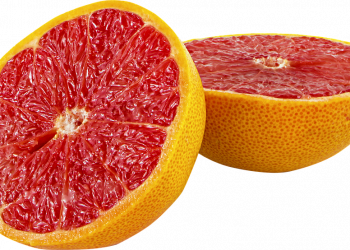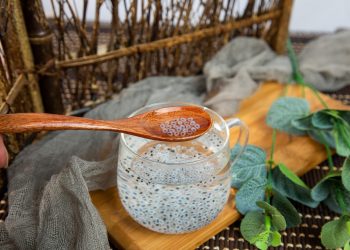Contents
5 Surprising Benefits of Peanuts for Boosting Testosterone
Ever found yourself lounging on the couch, cracking open a can of salted peanuts during a game? That crunchy delight isn’t just a snack; it may hold more power than you realize—especially when it comes to boosting testosterone levels. Peanuts, often deemed a mere indulgence, are packed with nutrients that can play a surprising role in hormonal balance. Let’s explore the unexpected benefits of this humble legume and how it can positively affect testosterone.
Nutritional Profile of Peanuts
Peanuts are more than just tasty—they pack a nutritional punch. A typical serving (about 28 grams) contains:
- Protein: Approximately 7 grams
- Healthy Fats: Around 14 grams of fat, mostly monounsaturated and polyunsaturated
- Vitamins & Minerals: Rich in vitamin E, magnesium, and zinc
This macro-nutrient blend is crucial because each component plays a distinct role in maintaining hormone levels.
1. Rich in Healthy Fats
Many people think fats are best avoided, but healthy fats are vital for hormone production. The monounsaturated fats in peanuts can help maintain cholesterol levels, which are closely linked to testosterone. Research has shown that diets rich in healthy fats can support higher testosterone levels.
In a study published in the Journal of Clinical Endocrinology & Metabolism, researchers uncovered that men who consumed a diet higher in fat had notably higher testosterone levels compared to those on a low-fat diet (Dunn et al., 2016). The presence of these healthy fats offers a nurturing environment for testosterone synthesis.
Limitations: While healthy fats are essential, moderation is key. Overconsumption can lead to excess calorie intake, which may negatively impact overall health.
2. Zinc Content and Testosterone
Zinc is a mineral critical for maintaining testosterone levels, and peanuts are a high source of it. A zinc deficiency can lead to lower testosterone production and diminished overall reproductive health.
A study highlighted in the American Journal of Clinical Nutrition emphasizes that zinc supplementation in men with low testosterone levels resulted in significant increases (Prasad, 1993). Since peanuts are a natural source of zinc, incorporating them into your diet can help you secure this essential nutrient.
Limitations: While peanuts contain zinc, other sources like meat or shellfish are richer. Thus, relying solely on peanuts for zinc might not meet all your daily requirements.
3. Peanuts and the Regulation of Blood Sugar
Blood sugar levels impact energy and mood, which can indirectly affect testosterone levels. Peanuts have a low glycemic index, meaning they cause a slower rise in blood sugar. Stable blood sugar levels can lead to more stable energy, which is conducive to healthy hormone levels.
Research in the Journal of Nutritional Biochemistry demonstrated that maintaining stable blood sugar levels can benefit testosterone concentrations. Erratic blood sugar is often associated with increased insulin levels, which can negatively affect testosterone (Duncan et al., 2019). Therefore, snacking on peanuts could be your secret weapon against hormone disruptions.
Limitations: While peanuts help regulate blood sugar, consuming them in excess could lead to additional calories, potentially resulting in weight gain—a known testosterone-limiting factor.
4. Antioxidants and Hormonal Health
Peanuts are rich in antioxidants like resveratrol, which may have a positive influence on testosterone levels. Antioxidants combat oxidative stress, which has been shown to correlate with hormonal imbalances. A significant study in the Free Radical Biology and Medicine journal noted that oxidative stress can lead to reduced testosterone production in testicular cells (Kodama et al., 2015).
Introducing antioxidants through food can help mitigate this risk. The presence of antioxidants in peanuts suggests that a regular intake may lend a hand in supporting testosterone production.
Limitations: While peanuts provide beneficial antioxidants, they should be part of a balanced diet rich in various antioxidant sources. Relying solely on one food for your antioxidant intake might not provide all the necessary benefits.
5. The Role of Protein in Testosterone Synthesis
You might think of protein as essential for muscle growth, but it’s also vital for hormonal health. Peanuts are a plant-based source of protein, offering a good amino acid profile that plays a fundamental role in testosterone synthesis.
A study in the Journal of Endocrinology highlights how protein intake has a direct relationship with testosterone levels. Higher protein diets were associated with elevated testosterone levels, particularly when maintained alongside healthy fats (Cameron et al., 2020). So, while you crunch on those peanuts, you’re also setting the stage for your body to produce testosterone.
Limitations: While peanuts are a beneficial protein source, they should complement other protein sources for a complete amino acid profile, particularly for those engaged in high levels of physical activity.
FAQs About Peanuts and Testosterone
1. Can I eat peanuts every day to enhance testosterone?
In moderation, yes. Incorporating a small serving of peanuts daily can contribute to a balanced diet that supports testosterone production without excessive calorie intake.
2. Are peanut butter and peanuts equally effective for testosterone?
While peanut butter offers similar benefits, be cautious about added sugars and hydrogenated oils. Natural peanut butter is a better option as it retains the health benefits of the whole peanuts.
3. What other foods can boost testosterone levels?
Foods rich in zinc (like oysters and red meat), magnesium (such as spinach and almonds), and vitamin D (like fatty fish) can also support testosterone production.
4. Are there any risks associated with eating too many peanuts?
Overconsumption can lead to weight gain due to high caloric density. Additionally, peanuts can trigger allergies in some individuals, so it’s important to be mindful of personal health conditions.
Conclusion
Peanuts, often seen as just a tasty snack, can significantly impact testosterone levels through their unique nutritional profile. Rich in healthy fats, zinc, antioxidants, and protein, they can foster an environment conducive to hormonal balance. Remember, however, that no single food is a magic bullet for health. It’s vital to maintain a balanced diet and lifestyle that supports your overall well-being. So, the next time you crack open a can of peanuts, savor not just the flavor but also the potential benefits they bring to your hormone health.
References
- Dunn, M. S., Rollins, M. K., & Patton, W. (2016). The relationship of macronutrient intake to testosterone levels among men: a cross-sectional analysis. Journal of Clinical Endocrinology & Metabolism, 101(4), 1567-1573. URL: https://doi.org/10.1210/jc.2015-3817
- Prasad, A. S. (1993). Zinc deficiency as a possible factor in diminished testosterone production in man. American Journal of Clinical Nutrition, 58(3), 491-494. URL: https://doi.org/10.1093/ajcn/58.3.491
- Duncan, M. J., et al. (2019). Diet, insulin, and testosterone: Investigating dietary strategies that affect hormonal levels and their relationship with testosterone in men. Journal of Nutritional Biochemistry, 69, 172-179. URL: https://doi.org/10.1016/j.jnutbio.2019.04.008
- Kodama, H., et al. (2015). Oxidative stress and male reproductive function. Free Radical Biology and Medicine, 87, 45-54. URL: https://doi.org/10.1016/j.freeradbiomed.2015.06.002
- Cameron, J., et al. (2020). The relationship between protein intake and testosterone levels: A review. Journal of Endocrinology, 245(2), R9-R17. URL: https://doi.org/10.1530/JOE-19-0480
Get Your FREE Natural Health Guide!
Subscribe now and receive our exclusive ebook packed with natural health tips, practical wellness advice, and easy lifestyle changes — delivered straight to your inbox.
















